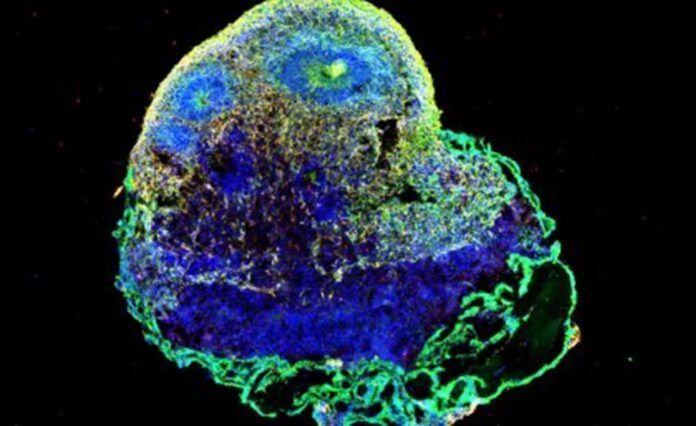A recent study reveals a groundbreaking discovery in COVID-19-related brain aging. The study, led by Dr. Julio Aguado and his team at the University of Queensland‘s Australian Institute for Bioengineering and Nanotechnology (AIBN), focuses on reversing the premature aging process triggered by COVID-19 in the brain.
UQ scientists discover how to reverse brain aging caused by COVID-19. Dr. Julio Aguado and the team at AIBN used lab-grown brain models to study the impact of COVID-19 variants on brain tissue.
Dr Aguado said, “We found COVID-19 accelerates the presence of ‘zombie’ or senescent cells, which accumulate naturally and gradually in the brain as we get older. Senescent cells are known to drive tissue inflammation and degeneration, leaving patients exposed to cognitive impairments like brain fog and memory loss.”
Dr. Aguado and his team discovered that COVID-19 accelerated brain aging, prompting them to try resetting the biological clock. They tested various drugs on lab-grown brain models. They identified four – navitoclax, ABT-737, fisetin, and a combination of dasatinib plus quercetin (D+Q) – that removed the cells caused by COVID-19.
These drugs rejuvenated the brain, reducing the risk of neurodegenerative symptoms in both the lab-grown models and a mouse infected with COVID-19. While more research is needed, this study is a significant step in understanding the link between viral infections, aging, and brain health.
In the long term, these drugs could be widely used to treat lingering symptoms after viral infections like COVID-19. Professor Ernst Wolvetang from AIBN highlighted that using human stem cell-derived brain organoids in research allows for experiments that would be challenging in humans.
This approach accelerates the testing of potential treatments, potentially impacting not only post-acute infection syndromes but also diseases like Alzheimer’s and other neurodegenerative conditions where senescence plays a role.
In conclusion, Julio Aguado and his team at the University of Queensland’s Australian Institute for Bioengineering and Nanotechnology have uncovered a promising approach to reverse brain aging caused by COVID-19. Identifying four drugs that selectively eliminate virus-induced senescent cells represents potential treatments for post-acute infection syndromes and a significant leap in understanding the complex relationship between viral infections and neurological aging.
These findings offer hope for addressing COVID-19-related neurological effects and potential applications in treating other neurodegenerative conditions. Further research on these drug candidates could open new avenues for enhancing neurological well-being in the context of viral infections.
Journal reference:
- Aguado, J., Amarilla, A.A., Taherian Fard, A. et al. Senolytic therapy alleviates physiological human brain aging and COVID-19 neuropathology. Nature Aging. DOI: 10.1038/s43587-023-00519-6.
